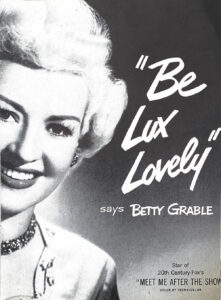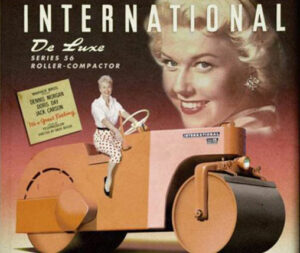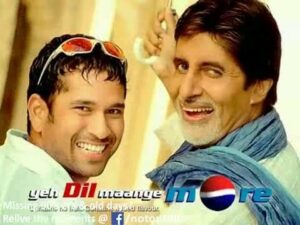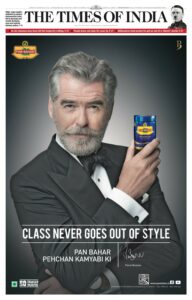Prabhakar Mundkur looks back at stars who promoted products, and the varying reactions over the years
When Lux was launched way back in 1924 in the US, perhaps it was the first brand to be launched with a celebrity endorsing it. Five years later the brand was launched in India with Leela Chitnis as its first brand ambassador.

Lux has never looked back. Its positioning of the ‘beauty soap of the stars’ has been so solid that it stays with the brand 95 years later.
In those days two subsequent world wars had poured gloom over the general populace. People went to the movies to cheer up and escape from the depression. Consumers felt that they gained status when they bought a product endorsed by a star. Movie stars those days were put on a pedestal and there was distance between the star and the average consumer. Glamour was defined as the magical or even unreal charm or beauty attached to a celebrity. In contrast glamour has now become more popular and the star is less on a pedestal than ever before. Stars are accessible both on social media and traditional media and we have a constant peekaboo into their lives through the news. Glamour no longer has the aura and the mystery of yesteryears.
Celebrities were good for business. And some celebrities got inextricably linked with some brands. We have come a long way since then. Earlier, endorsing brands and their advertising was an easy source of income for celebrities. And an easy way to get attention and credibility for brands. In the early days of celebrity endorsement, it didn’t really matter what product the celebrity was endorsing and if there was a natural fit between the celebrity and the product. As long as the ad just drew attention because of the celebrity featured in the ad. Doris Day for example endorsed Harvester road rolling equipment. Hardly a product/celebrity match.

One of the nagging marketing questions that has been asked over the last few decades has been whether consumers believe that the film star or celebrity actually uses the product they endorse. The answer to that question has always been that there is a willing suspension of disbelief about celebrity endorsements. Of course, even that willing suspension of disbelief is overly stretched when it comes to Doris Day endorsing road rolling equipment. But later decades produced a good fit between a product and the celebrity.
Choosy celebrities
Now, celebrities have become choosier about the brand they endorse. And the only celebrity endorsers are no longer just film stars. They are sports stars and social media stars from Instagram or YouTube.
For example Virat Kohli broke away from Pepsi two years ago. Obviously the negative health connotations of colas are finally affecting both the general public and the celebrities who endorse them. Not surprising. After all Amitabh Bachchan did much the same thing in 2014 when he decided to stop endorsing Pepsi. He is known to stopped endorsing Pepsi after a girl in Jaipur asked him why he promoted the soft drink that her teacher had branded as ‘poison’.

When asked why he changed his mind Rs 24 crores and 16 years later Bachchan had said “This impression is on the mind of the people… So I stopped endorsing Pepsi,” Bachchan said. “I tell this to my son Abhishek and to daughter-in-law Aishwarya also… If you have to endorse a product then you have to conduct your life in such a manner that it does not affect others’ lives.”
In an interview with CNN-IBN, Kohli said, “When I started my fitness turnaround, it was more of a lifestyle thing initially. If something goes away from that, I would not want to be a part of that or be promoting that,” he said. “We are actually on the cusp of making some big changes on that front. Things that I’ve endorsed in the past, I won’t take names, but something that I feel that I don’t connect to anymore. If I myself won’t consume such things, I won’t urge others to consume it just because I’m getting money out of it.”
Thus far celebrities in India were happy to endorse any product just for the money.
Hot water for celebs

Pierce Brosnan and Pan Bahar: Two years ago most people in New Delhi were stunned when they opened their morning newspaper to find a greying, bearded Pierce Brosnan in his role as James Bond holding a pack of Pan Bahar. Pan masala is known for its carcinogenic properties. If you thought Doris Day endorsing roadrolling equipment was weird, the Pierce Brosnan ad sought to cross a new boundary of the product/celebrity misfit.
This represented a good case of celebrities throwing all caution to the winds and endorsing a product just for the money.
But the ad drew so much flak from the public and especially on social media that Pierce Brosnan was forced to come out in the public and apologise and at least pretend that the manufacturers hadn’t quite told him the truth about the product that was being advertised. The ad was never seen again thanks to all the controversy.

Nicole Kidman and Etihad Airways: The Association of Professional Flight Attendants released a statement criticising the actress and UN Goodwill Ambassador for Women for appearing in the commercials of an airline that “imposes abusive labour practices on its female employees”.
That was a most unexpected twist to what seemed like an innocent endorsement for a new airline brand.
Celebrity endorsements in India
The Indian marketers’ obsession with celebrities is well known. it arises directly from our fascination and obsession with Bollywood and Cricket, the two hot buttons for marketers in the country.
If an Indian marketer lacks an idea for his brand, the easiest way to make up for the lack of an idea is to have a celebrity. Or in other words the celebrity becomes the advertising idea. Our preoccupation with celebrities often moves from the sublime to the ridiculous.
But Virat’s decision to move away from Pepsi might instil a sense of responsibility in Indian celebrities. As the Consumer Affairs Ministry is looking at ways to tackle misleading ads featuring celebrities, the Advertising Standards Council of India (ASCI) has asked celebrities to do the necessary due diligence of the claims made in these ads. The advertising watchdog has released a set of guidelines in a bid to protect consumers’ interest and encourage celebrities and advertisers to refrain from endorsing misleading advertisements.
“Celebrity should do due diligence to ensure that all description, claims and comparisons made in the advertisements they appear in or endorse are capable of being objectively ascertained and capable of substantiation and should not mislead or appear deceptive,” it said in a statement.
But colas along with some other unhealthy foods are likely to be hit. After all, didn’t Steve Jobs remind us many decades ago that colas were nothing but sugared water?
The move to make celebrities more accountable is likely to make celebrity endorsement a risky business in the future.








